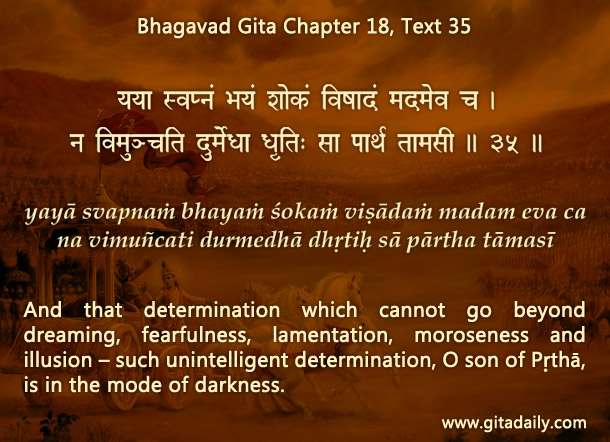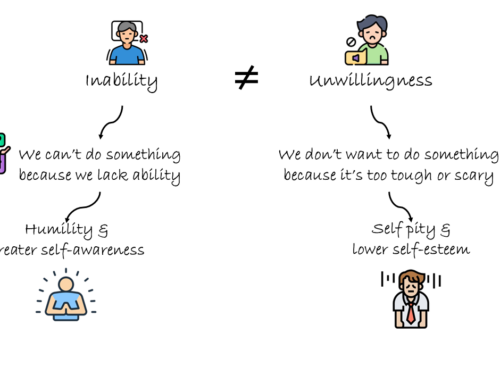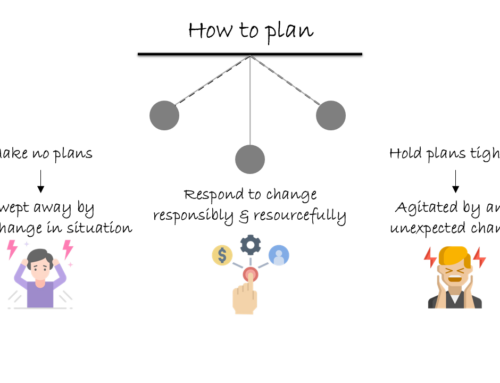Self-pity makes feel-bad seem feel-good
Suppose we are in physical pain. We will naturally do whatever we can to free ourselves from that pain as soon as possible. While such a response is exhibited by all living beings for protecting themselves from pain, that response is distorted by our mind when we experience pain at the emotional level. One kind of distorted response is self-pity.
Self-pity is a peculiar emotional state wherein we feel bad and feel good about feeling bad. We parade our distress to the world and most certainly to ourselves and then seek sympathy about how we have been victimized and traumatized. And such showing our misery becomes the way we feel good about how bad we feel. Indeed, we humans seem to have a deep-rooted need to complain and to blame. And perversely, doing the things that make us feel victimized and to thereby justify our sorry state is the distressful way we subject ourselves to unnecessary pain.
The Bhagavad-gita (18.35) states that negative emotions such as fearfulness, lamentation and moroseness — all of which are typical of self-pity — characterize a perverse determination afflicted by the mode of ignorance.
Such is the deadly trap into which we may fall in our mind, knowing that it can become like a black hole to consume our consciousness, we need to ensure that we don’t pseudo-medicate ourselves by feeling good about feeling bad. The best way to protect ourselves is by gaining access to processes by which we can not only feel-good but also become-good. Gita wisdom explains that the all-pure, all-powerful, all-pleasurable ultimate reality, Krishna, is our greatest well-wisher, and we can connect with him by the time-tested process of bhakti-yoga. When we habituate ourselves to connecting with Krishna, we get a steady inner shelter that enables us to identify outer situations more discerningly and thereby do what it takes to either tolerate or transcend difficult situations.
Think it over:
- How does our mind make us feel-good about feeling bad?
- How can we deal with the mind’s black hole?
- How can spirituality help us avoid pseudo-medicating ourselves?
***
18.35 And that determination which cannot go beyond dreaming, fearfulness, lamentation, moroseness and illusion – such unintelligent determination, O son of Prutha, is in the mode of darkness.
To know more about this verse, please click on the image
Explanation of article:
Podcast:






Haribol !
Very true .